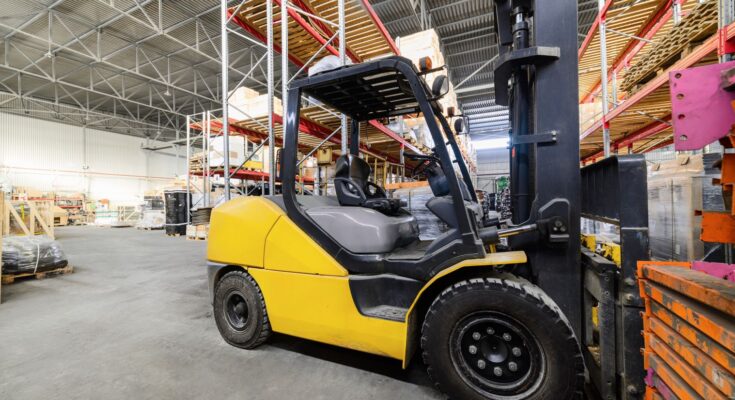Table of Contents
- Introduction
- Understanding Forklift Challenges
- Identifying the Range of Challenges
- Impact on Productivity and Safety
- Top 5 Common Forklift Challenges
- Mechanical Breakdowns
- Operator Training and Skill Shortage
- Warehouse Layout and Space Constraints
- Safety Concerns and Regulations
- Battery and Power Management
- Overcoming Forklift Challenges
- Investing in Preventive Maintenance
- Enhancing Operator Training Programs
- Optimizing Warehouse Layout and Navigation
- Prioritizing Safety and Compliance
- Implementing Efficient Battery Maintenance
- Innovations in Forklift Technology
- Automation and Robotics Integration
- Telematics for Predictive Maintenance
- Lithium-ion Batteries for Improved Performance
- Conclusion
- FAQs About Forklift Challenges
Introduction
Forklifts, the indispensable machines of industrial settings and warehouses are a vital component in the handling of materials and logistics operations. But, just like every other equipment, they also have many problems. This article we’ll examine the most common issues encountered by forklift operators as well as managers, and discuss effective ways to conquer these challenges.
Understanding Forklift Challenges
Identifying the Range of Challenges
The issues that arise from forklift operations cover an array of. from mechanical failures, to compliance with regulatory requirements, these issues can seriously impact the productivity of your company’s operations and profitability.
Impact on Productivity and Safety
If forklift issues occur, they can cause disruption to the flow of work and undermine safety measures. Inadequately addressed issues can delay the processes of material handling but also create risk to operators as well as other workers.
Top 5 Common Forklift Challenges
Mechanical Breakdowns
Forklifts, just like all other machines are susceptible to mechanical malfunctions. A malfunction can cause delay in shipments, downtime and higher maintenance expenses.
Operator Training and Skill Shortage
Inadequately trained workers contribute to accidents and inefficiency. There is the challenge of a shortage of skilled forklift operators. This is only a heightened problem.
Warehouse Layout and Space Constraints
Poorly planned warehouse layouts and limitations on space make it difficult for a forklift to maneuver and cause the accumulation of goods, damage to them and a decrease in efficiency.
Safety Concerns and Regulations
In order to maintain an safe working environment is vital. Forklift accidents can cause severe injuries and costly fines for not observing safety rules.
Battery and Power Management
Problems with batteries, like inadequate charging infrastructure or improper maintenance, could cause operating disruptions and decrease in the life of batteries.
Overcoming Forklift Challenges
Investing in Preventive Maintenance
Regular inspections and maintenance can help prevent breakdowns. Establishing a maintenance program and fixing issues as quickly as possible will extend the life of forklifts.
Enhancing Operator Training Programs
A comprehensive training program, which includes safety guidelines, can increase the efficiency of operators and lower the chance of injuries. Continuous learning and ability development is vital.
Optimizing Warehouse Layout and Navigation
Designing a new warehouse layout and installing efficient navigation systems can help reduce congestion, improve flow and the overall efficiency.
Prioritizing Safety and Compliance
Adhering strictly to safety rules and providing the right safety equipment can help avoid accidents. Regular safety audits as well as employee education are crucial.
Implementing Efficient Battery Maintenance
Maintaining a proper charging infrastructure and following the recommended battery maintenance practices can extend battery life, decrease the amount of downtime and increase overall efficiency.
Innovations in Forklift Technology
Automation and Robotics Integration
Automated forklifts with sophisticated sensors and robotics technology will simplify operations, decrease human errors and boost efficiency.
Telematics for Predictive Maintenance
Telematics solutions are able to monitor the performance of forklifts and provide live data to help with predictive maintenance, which can reduce unplanned downtime.
Lithium-ion Batteries for Improved Performance
Lithium-ion batteries last longer and faster charging times and lower maintenance requirements when as compared to conventional lead-acid batteries.
Conclusion
Forklift problems are a fact in the field of material handling However, with the right strategies they can be successfully handled and overcame. With preventive maintenance investments, focusing on operator training and safety, enhancing the layout of warehouses, and adopting technology advancements, businesses can increase productivity, decrease risk, and ensure smoother operation.
FAQs About Forklift Challenges
- Which are the most common reasons for breakdowns of forklifts? Forklift breakdowns can be caused by things like damage and wear, insufficient maintenance and operating conditions.
- What can I do to address the lack of forklift operators who are skilled? Address the skill shortage by working in technical colleges, providing apprenticeship programs and complete on-the job training.
- What role can Telematics play in the maintenance of forklifts? Telematics enables remote monitoring of the performance of the forklift which allows maintenance personnel to detect problems before they cause breakdowns.
- Are there alternative to conventional battery forklifts? Yes, lithium-ion batteries are an environmentally sustainable option that offers better performance and a lower environmental impact.
- Does automation fully replace forklifts operated by humans? While automation can increase efficiency, humans remain essential in tasks that require flexibility and decision-making in a variety of situations.




